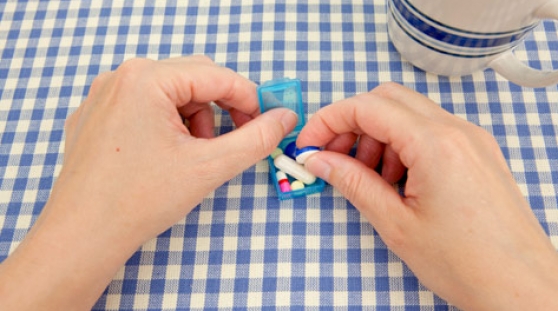Women's Health Health Center
Table of Contents

Sexual Health: Some forms of contraception can lead to complications. Ask your doctor about all your contraception options, as you may wish to change your method. For example, you may want to change condom brand or sizing to increase comfort. Or you might change the type of birth control you're using — such as a switch from pill to patch or injection to vaginal ring — to reduce side effects. If one type of contraception hasn't worked how you would like it to, you may wish to look into more permanent options such as in intrauterine device (IUD). Sterilization, which permanently prevents a woman from getting pregnant and involves a surgical procedure that usually cannot be reversed, is available for women who have decided they do not wish to have children or have completed their family.
Many STDs are caused by bacteria and can be treated by antibiotics prescribed by your doctor. However, some STDs are caused by viruses that cannot be cured but instead must simply be managed. Some viral STDs include: HIV/AIDS, genital herpes and hepatitis B. Ask your doctor on how to manage a viral STD.
Reproductive Health: For most women, their monthly period will occur regularly until they reach menopause. Over-the-counter products such as tampons and sanitary pads may be used to control bleeding and for cleanliness purposes. Mild pain medication may also be used to treat and control symptoms such as abdominal pain.
Pregnant women need proper prenatal care, which includes frequent visits to the doctor or gynecologist as well as dietary changes and increased vitamin intake. Most experts suggest that pregnant women see their doctor about once each month for weeks 4-28, twice a month for weeks 28-36 and weekly for weeks 36 through the birth. If you are older than 35 years, or your pregnancy is high-risk, you'll probably see your doctor more often based on his or her recommendation. Getting 400-800 micrograms of folic acid per day is often recommended for pregnant woman to prevent many types of birth defects. It is also vital to quit smoking and drinking and to avoid toxic substances like chemicals and cat or rodent feces at home and work. Check with your doctor to see if the medications you take are still safe during pregnancy. Discuss vaccinations with your doctor as well.
During pregnancy, it's recommended that women eat a wide variety of healthy foods. Choose fruits, vegetables, whole grains, calcium-rich foods and foods low in saturated fats. Drink plenty of water throughout the day to stay hydrated. Make sure you're getting all the nutrients you need every day, including iron which can help prevent anemia (a condition linked to preterm birth and low birth weight). Protect yourself and your baby from food-borne illnesses such as toxoplasmosis and Listeria by washing all fruits and vegetables before eating. Don't eat undercooked or uncooked meat or fish and always handle, clean, cook, eat, and store foods properly. Don't eat fish with high levels of mercury. Such fish include swordfish, king mackerel, shark and tilefish. Make sure to gain a healthy amount of weight — that weight is needed for you and your baby. Your doctor can guide you on how much weight to gain and what you should aim for during the pregnancy.
Menopause: Menopause is not an illness. It is a point in a woman's life when the body begins to stop production of the hormones estrogen and progesterone. However, menopause does mean a woman’s body is more prone to aging and certain conditions without the protection these hormones can provide. Therefore, it is important to stay healthy during and after menopause. Quit smoking and start eating healthier with a diet low in fat and high in fiber, mixing in a variety of fruits, vegetables and whole grains. Exercise at least three days a week. Try activities such as walking, jogging, or dancing.
If you need medical treatment during menopause, work with your doctor to find the medication that's right for you. Medications for high blood pressure, high cholesterol and osteoporosis may need to be considered, as menopause increases the risks for these conditions. Phytoestrogens are estrogen-like substances that work in the body like estrogen but in weaker form. Regular ingestion of phytoestrogens may relieve some symptoms of menopause. They can be found in some cereals, vegetables, legumes (including soy), and various herbs. Consuming too much phytoestrogen may carry risks, and you should consult your doctor when considering using them. Menopause also signals the need for regular pelvic and breast exams, Pap tests and mammograms.
